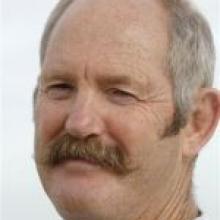
Bruce Van Essen, an ACC beneficiary of Dunedin, is claiming compensation and/or damages on a number of counts as well as aggravated damages and exemplary damages.
The action, filed in a statement of claim in the High Court at Dunedin, is the latest chapter in a long-running saga of claim and counterclaim.
It was prompted by the search in September 2006 of Mr Van Essen's Dunedin home by former senior Dunedin detective, turned private investigator, Peter Gibbons.

There were disputes surrounding how the search warrant was obtained, and how the subsequent search was conducted, which prompted an Independent Police Conduct Authority report in 2008.
The IPCA report was critical of the Dunedin police's report on the search, saying it was not to an "acceptable professional standard" and did not properly manage an "apparent conflict of interest" in the case.
The IPCA found no illegality or misconduct by Dunedin police, but said any apparent conflict of interest, if not properly managed, would "undermine public trust and confidence in police work".
The statement of claim was lodged late last year and obtained by the Otago Daily Times this week.
In it, Mr Van Essen's lawyer cites Mr Gibbons, his investigative company Mainland Information Consultants Ltd, Dunedin-based and serving police officers Sergeant Sheldon Kindley and Constable Andrew Henderson and non-sworn Dunedin police employee Kelly Knight, and an ACC employee.
Const Henderson is Mr Gibbons' son-in-law and the claim highlights this relationship, suggesting "the application for the warrant was not sought in good faith" and that "the search was unlawful and unreasonable".
One example of eight given for not having sought the warrant in good faith was the claim "the third defendant [Const Henderson] relied only upon information provided to him by the fifth defendant [Mr Gibbons] and made no attempts to independently verify the allegations against the plaintiff [Mr Van Essen]".
Mr Van Essen's principal counsel is high-profile Hong Kong-based QC Dr Gerard McCoy, whose Gilt Chambers is one of the largest in Asia. He is originally from Invercargill and studied in New Zealand.
On behalf of Mr Van Essen, Dr McCoy is seeking unspecified compensation or damages, aggravated and exemplary damages, and costs for the proceedings.
Instructing barrister and solicitor Chris Morrall, of Christchurch, said, when contacted, a teleconference between judge, defendants and counsel is set down for March 14 to decide a timetable for filing of defences.
Mr Morrall said the case would then move to a "judicial settlement conference" to try to reach an agreement, but if none was arrived at, the case could go to trial.
The 2008 IPCA report showed a search of Mr Van Essen's home was requested by ACC and carried out by Mr Gibbons' Mainland Information Consultants Ltd, as a contractor to ACC; and the Dunedin police officer who sought the search warrant from the Dunedin District Court, Const Henderson, relied on information from ACC's private investigator, Mr Gibbons.
IPCA chairwoman, Justice Lowell Goddard, found either Const Henderson should not have been put in a position of dealing with his father-in-law, or had his work properly supervised.
The search warrant "lacked any clear description" of alleged offences by Mr Van Essen, provided no documentary evidence of any offence, and had Mr Van Essen been charged, the warrant's legality could have been challenged, she said in the statement at the time.
The current statement of claim outlines four causes of action: a "breach of Mr Van Essen's rights under the Bill of Rights Act", "trespass of land and goods", "malfeasance in public office" and "malicious procurement of a search warrant".
It cites the Attorney-general of New Zealand - "sued for and on behalf of the New Zealand Police" - as the first defendant in the action.












